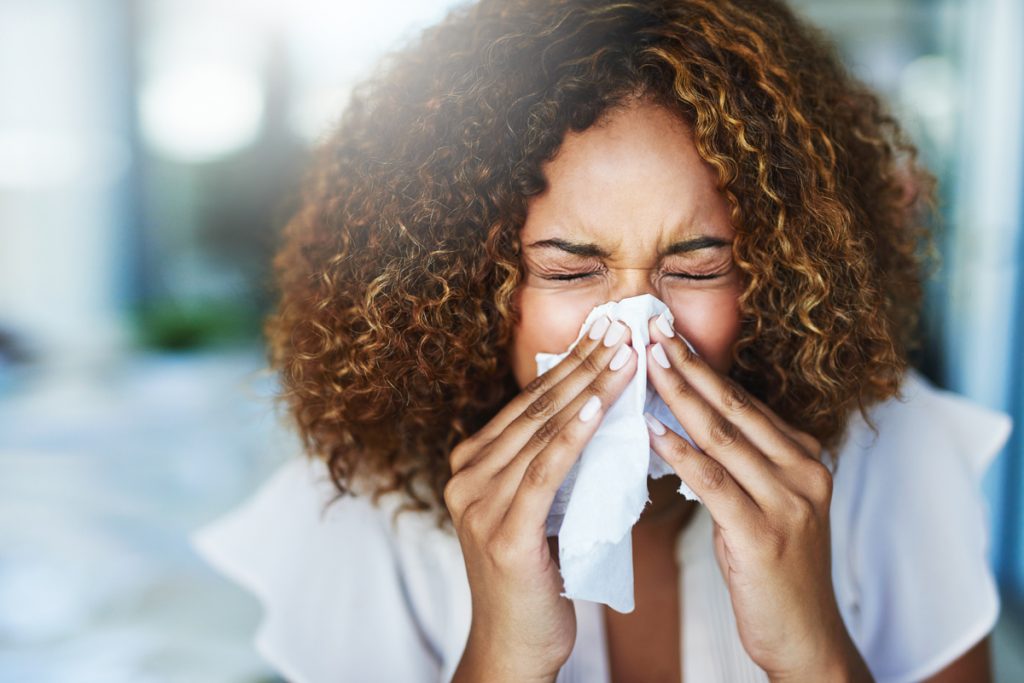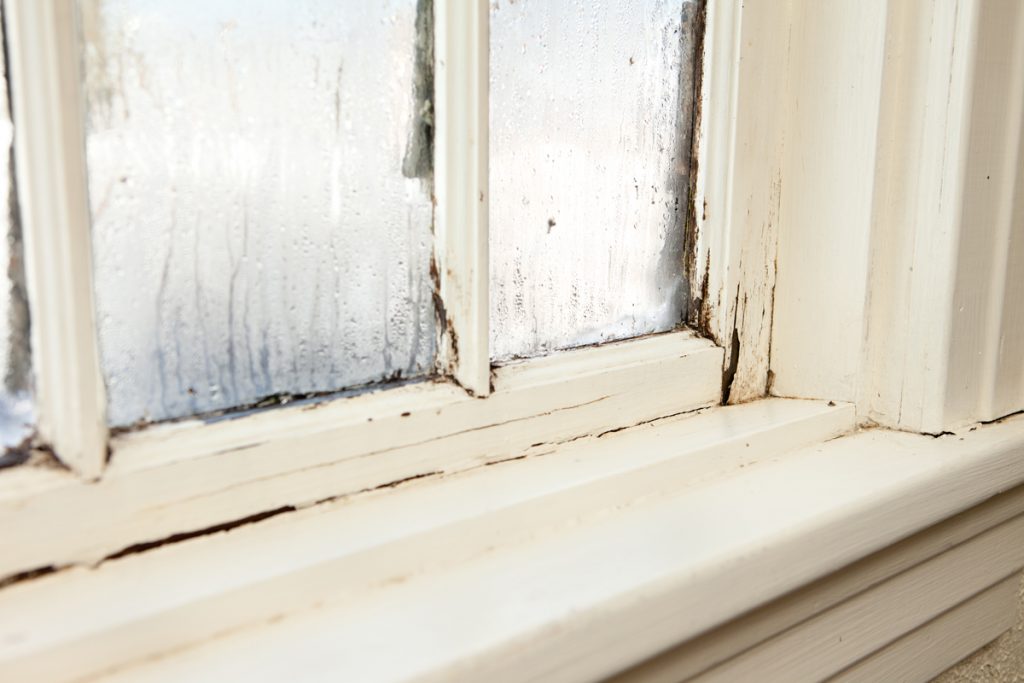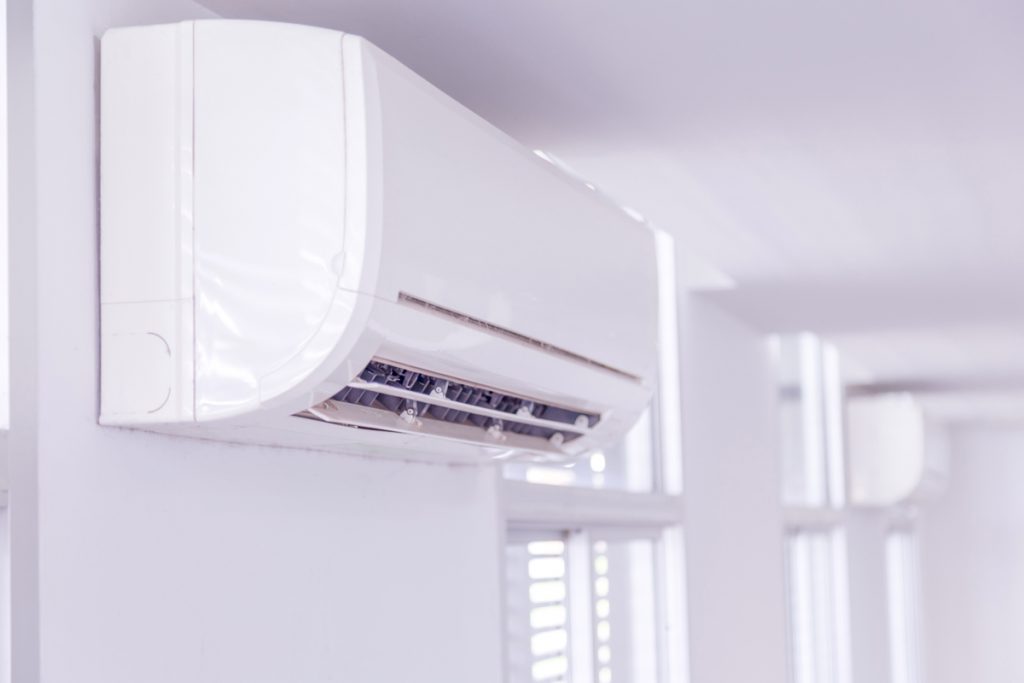Many HVAC specialists are now touting the use of whole-house humidifiers. Some are described as a year-round (or very nearly) product. You may be wondering how that can be. Why on earth would you ever use a humidifier in the summer? We researched this to get the answer to this very question.
A humidifier in the summer is as useful as one in the winter, though the amount of use you will get depends on your area's specific climate and weather patterns. There are numerous benefits, including:
- Improved breathing quality
- Decrease in illness
- Improved skin condition
- Better hair
- Benefits to the home
Naturally, there's also a time you shouldn't use a humidifier. This article will elaborate on when and how to properly use a humidifier for maximum benefit and give more details about what those benefits are.

Benefits of Proper Humidity Levels
Improved Breathing Quality
- Allergies: For many people, summer is also an allergy season. Dry air can cause many allergens to become airborne, aggravating those who are already suffering. It can also dry out the nasal passages, which gives those same allergens easy access into your lungs.
- Asthma: Using a humidifier to keep moisture at the proper level can also benefit those with asthma. Dry air can be irritating to the nerves in the lungs. Warm air soothes airways and allows more air to be drawn into the lungs.
- Snoring: You can reduce the loudness and intensity of snoring by properly moisturized nasal passages.
Decreased Illness
Dry air lowers our bodies' natural defense against illness. Also, viruses like the flu (and possibly COVID-19) have been found to have reduced transmission and become inactive sooner in humidity levels above 40 percent. If sickness does strike, this recommended 40 percent humidity can ease flu and cold symptoms as well.

Dry Air and Your Skin
- Wrinkles: Everyone knows about the dry, chapped lips, itchy eyes, and bloody noses brought on by dry air. But did you know that the right humidity level prevents wrinkles by hydrating your skin? Even existing wrinkles look less prominent on fuller, well-hydrated skin.
- Skin hydration also makes it easier to regulate your temperature.
- The right moisture can improve pores and keep your skin looking healthy.
- Itchiness from dry skin and even eczema can be improved.
Better Hair
- Just like itchy skin, an itchy scalp can be caused by dry air. A humidifier may even improve dandruff.
- Dry hair can become brittle and dull. The proper humidity level can alleviate this problem and give the collagen in your hair the moisture it needs to shine.
Benefits To The Home
- Dry air can negatively affect house plants, especially ones who crave moisture.
- Wood floors and furniture are negatively impacted by not enough humidity and may last longer if a humidifier is run as needed year-round. Wood can shrink, split and crack in dry air.
- Trim, framing, and molding can all crack or pull away from the wall in dry air. Like wood furniture, they will last longer and suffer from fewer problems if humidity levels are maintained.
- Appropriate humidity can keep wallpaper from drying and cracking.

Can You Use A Humidifier All Year Round?
Many people associate a humidifier with the dry, heated, and circulated air of the wintertime. But the truth is that a humidifier is a useful tool in many climates year-round. The ideal humidity level of a house is 40 percent. You can purchase a hygrometer such as this one by ThermoPro.
Click here to see the ThermoPro Digital Hygrometer Room Thermometer and Humidity Gauge on Amazon.
It's an inexpensive tool to let you know when to run (and when to shut off) your humidifier, regardless of the season. Be sure to place yours away from a high moisture area such as the bathroom or kitchen, for an accurate reading.
If moisture varies widely in your home and you're concerned about the different humidity levels in different areas, you may prefer this Pinmu 4-pack instead. You can place them in several locations like a bedroom, bathroom, basement, kitchen, or living space to compare humidity levels.
Click here to see the Pinmu 4-Pack Mini Digital Humidity Meters Gauge on Amazon.
Should A Humidifier Run All The Time?
The humidifier should run when the humidity level drops below 40 percent and should be shut off once the humidity approaches 50 percent. A house should never be above this level. Humidity higher than this point can cause several concerns, including:
- Mold growth and mildew
- Increased bacteria growth and illness
- Dust mite infestations
- Respiratory concerns - allergy and asthma sufferers, in particular, will be affected by the first three things listed, which can all aggravate their condition. Even in healthy people, high humidity increases chemical off-gassing from products like carpeting.
- A muggy or clammy feeling in the house
If a whole-house humidifier is installed, you can set the humidistat (a device like a thermostat) to your preferred setting. Simple as that.
Can You Use A Humidifier With the AC On?

It seems almost counterintuitive to run an air conditioner to remove humidity and a humidifier to increase humidity at the same time. But it can be helpful to run a humidifier while the air conditioner is on.
People who argue that an air conditioner and a humidifier are working against each other forget that an air conditioner is not designed to act as a dehumidifier. Removing humidity is a byproduct, not intended use, of an air conditioner. As it cools, it also pulls moisture from the air. After a while, the house will no longer be at the ideal humidity level, and you'll be left with dry, recirculated air.
Running a humidifier at the same time as an air conditioner can have two main benefits:
- It counteracts the negative effect of the air conditioning, helping to maintain ideal humidity levels.
- Wet air feels cooler than dry air when blown out of the fan of the air conditioning unit. The temperature will feel comfortable at a higher degree, allowing you to use less air conditioning and save money.
How Much Humidity Does An Air Conditioner Remove?
An air conditioner can remove as much as 20 gallons of water from the air every day. In certain climates, such as Georgia, humidity is regularly high all summer long. In those areas, the loss of that much moisture poses little concern. People in those areas may be able to turn their humidifiers off for several months with no problems.
But in other regions, such as Arizona, the heat of summer is known as a dry heat for a reason. Running an air conditioner all day to maintain a comfortable temperature can be problematic when the humidity is already low. An air conditioner can easily lower humidity below 30 percent, well into the range where adverse side effects may be experienced.
In Conclusion
A humidifier can be a useful tool in summer and winter to maintain an adequate and healthy humidity level in your home. You should always be pair it with a hygrometer (or humidistat) for reading humidity levels. This allows the humidifier to be utilized at ideal times to maintain 40 percent humidity in the home (and no higher than 50 percent). A humidifier should be turned off and on as needed when humidity levels are too high or too low, as there are adverse risks to both extremes.


